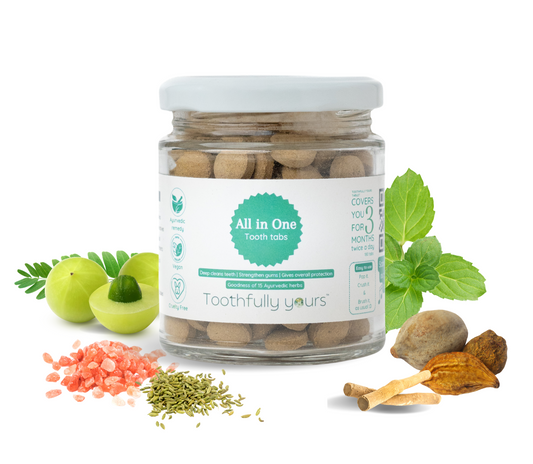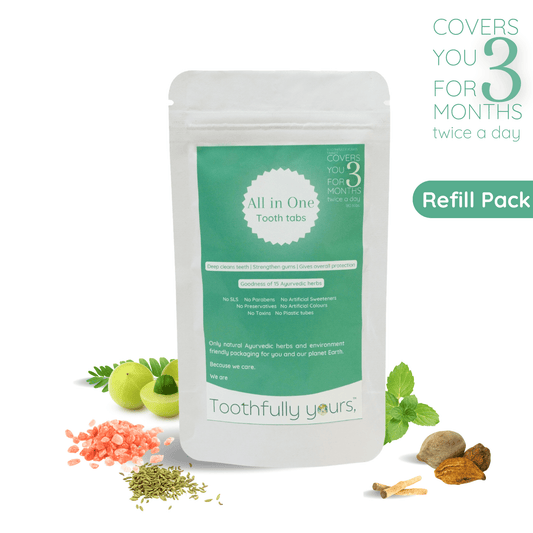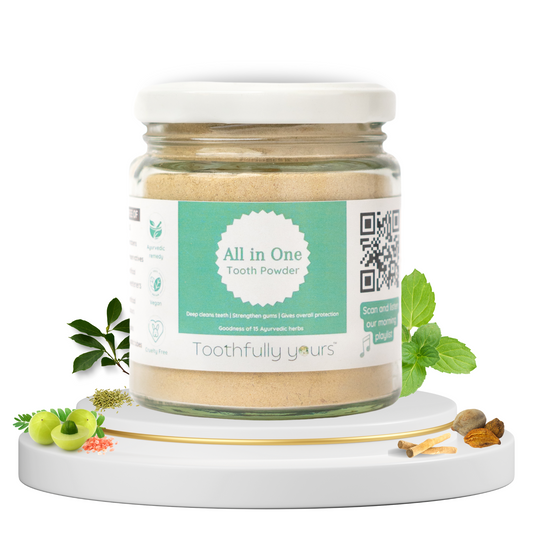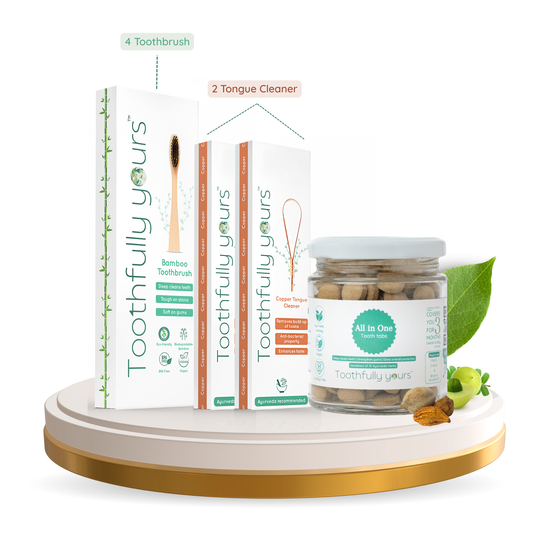
How To Get Rid Of Bad Breath? Bad Breath Causes & Solution
What is Bad Breath?
Unpleasant or foul smell from the mouth is referred to as bad breath, or halitosis. Bad breath can happen occasionally or persist over time, affecting your moral, confidence and social interactions. While poor oral hygiene is a common cause, bad breath may also indicate underlying health issues.
What are Some Common Causes of Bad Breath?
Bad breath can occur due to multiple reasons, identifying the root cause is key to addressing bad breath effectively. Here are some common reasons:
- Inadequate oral hygiene
- Food particles trapped between teeth for long time
- Dry mouth (xerostomia)
- Eating strong-smelling foods like garlic and onions and not following up with brushing
- Smoking or using tobacco
- Gum disease or oral infections
- Digestive problems
What are the Symptoms of Bad Breath
Look for these signs:
- A persistent unpleasant odor or taste in your mouth
- Dry mouth or a white-coated tongue
- Sore throat or postnasal drip
- Feedback from others about a foul smell when you talk
How Food Affects Breath
Lack of brushing techniques or frizzled toothbrush can lead to improper cleaning of teeth. And in such cases teeth with plaque and stuck food between teeth are commonly observed. Stuck food in between the teeth can cause many issues, especially bad breath. Certain foods which contribute significantly to bad breath are:
- Garlic and Onions: These contain sulfur compounds that not only linger in your mouth but also enter your bloodstream, leading to prolonged bad breath.
- Dairy Products: Residue from dairy can provide a breeding ground for bacteria, which release foul-smelling gases.
- Coffee and Alcohol: These beverages dry out the mouth, reducing saliva production and allowing odor-causing bacteria to thrive.
What Health Conditions Can Cause Bad Breath?
Bad breath isn’t always about food or hygiene; it can also be linked to health conditions. Oral health is a good reflector of overall health and many symptoms can foretell about degrading oral health:
- Sinus infections or postnasal drip
- Gastroesophageal reflux disease (GERD)
- Diabetes: Fruity-smelling breath may indicate high blood sugar.
- Kidney or liver disease
- Chronic respiratory infections
If bad breath persists despite good hygiene, consult a doctor to rule out these conditions.
How to Get Rid of Bad Breath?
A combination of a healthy lifestyle with proper diet, hydration, and good oral hygiene, with some targeted products can effectively tackle bad breath. Here’s how:
- Brush and floss your teeth twice daily.
- Clean your tongue with a copper tongue cleaner to remove odor-causing bacteria.
- Stay hydrated for preventing dry mouth.
- Avoid smoking and tobacco.
- Chew sugar-free gum or mints to stimulate saliva production.
- Use an alcohol-free mouthwash for fresh breath.
Home Remedies for Bad Breath
In the early stage, home remedies can do wonders. As they are easy to do and economical, natural remedies can promote fresh breath all day. Few remedies are as follows:
- Chew parsley or mint leaves.
- Use baking soda as a gentle toothpaste alternative.
- Gargle with salt water.
- Drink green tea for its antibacterial properties.
- Use apple cider vinegar diluted with water.
Products You Can Use to Get Rid of Bad Breath
There are many products available in the market for fighting bad breath and promoting fresh breath. It is important to understand the root cause and use the products which can help solve the issue by its root and not only blasts mint in the mouth to overpower bad breath. Incorporate these into your routine for effective results:
- Tooth Tabs: Natural, SLS and fluoride free toothpaste tabs enriched with herbs to combat bad breath.
- Copper Tongue Cleaner: Removes bacteria and residue from the tongue for long-lasting freshness.
- Alcohol-Free Mouthwash: Keeps your mouth fresh without drying it out.
- Interdental Brushes: Cleans hard-to-reach areas where food particles may linger and toothbrush can’t reach.
What Food Makes Your Breath Smell Good?
As there are food which can deteriorate oral hygiene and induce foul smell, certain foods can naturally freshen your breath, such as:
- Fresh herbs: Mint, basil, and parsley neutralize odors.
- Crunchy fruits and veggies: Apples, carrots, and celery stimulate saliva production.
- Yogurt: Reduces hydrogen sulfide levels in the mouth.
- Green tea: Contains polyphenols that fight bacteria.
When to See a Doctor for Bad Breath
If bad breath persists despite following good oral care and natural remedies, consult a doctor or dentist. Persistent halitosis can be a sign of:
- Gum disease
- Oral infections
- Digestive or metabolic disorders
Conclusion
Bad breath is a common yet manageable condition. By addressing its causes and incorporating good oral hygiene and natural remedies, you can achieve fresher breath and greater confidence. For long-term results, use effective products with non toxic and natural ingredients and a copper tongue cleaner, and don’t hesitate to seek medical advice if the problem persists.





